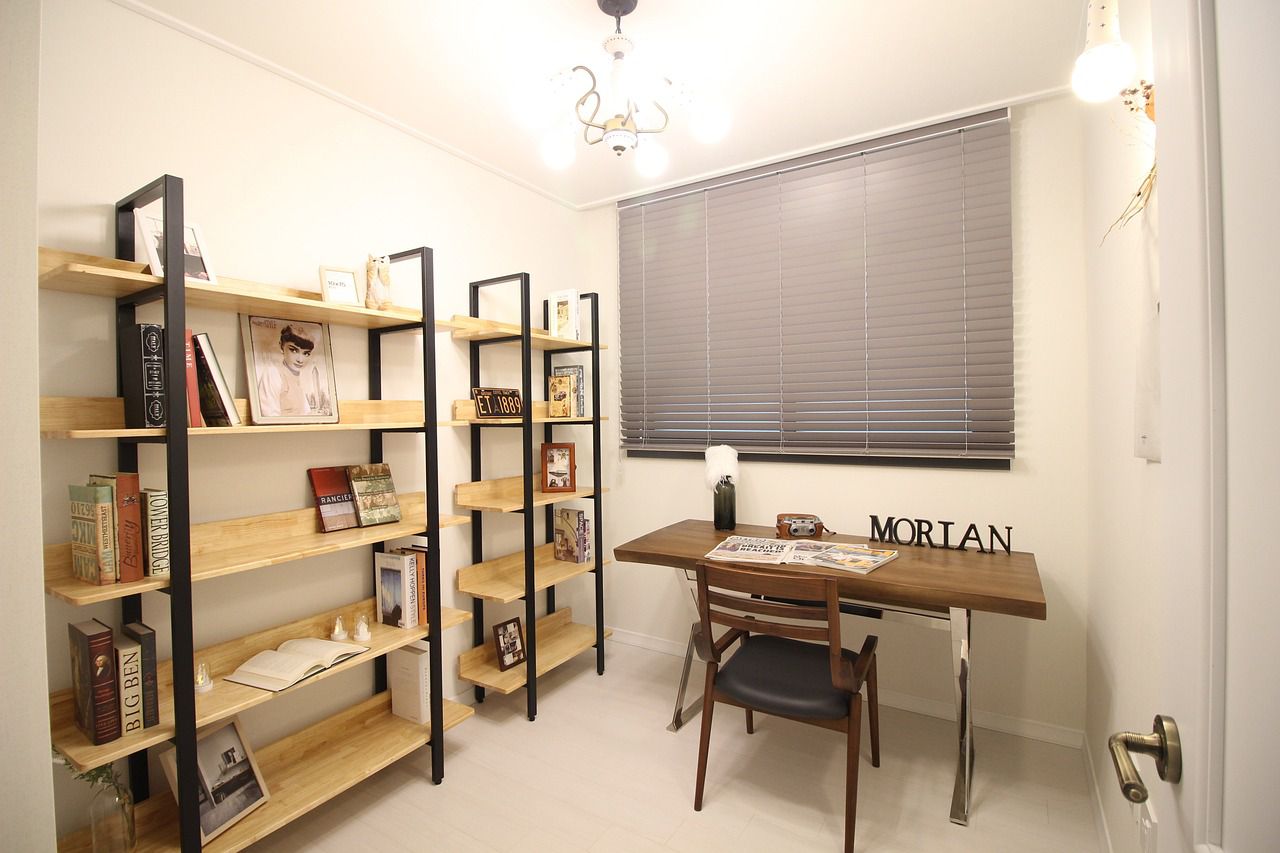A home library can be a beautiful and interesting part of your interior, and it can also be an opportunity to showcase your book collection.
It's easy to create a home library in a huge house, but what if your house is small?
Here are a few tips for you.

Choose the Right Spot
Pick a corner or wall in your small room where you want your library. It could be near a window with good light or any quiet spot you like.
Shelves
Get some bookshelves that fit in your chosen spot. Look for tall, narrow ones or wall-mounted shelves if you're short on space.
You can find affordable options at furniture stores or online.
Sort Your Books
Go through your books and decide which ones you want to keep in your library. Donate or store books you don't need in another place to save space.
Organize
Arrange your books on the shelves. You can organize them by genre, author, or size, whatever makes it easier for you to find them.
Cozy Seating
Add a comfy chair or a small sofa if you have space. This gives you a place to sit and read in your library.
Good Lighting
Make sure you have enough light for reading. A table lamp or wall sconces can work well in a small library.
Decorate
Add some personal touches like photos, artwork, or decorative items to make your library feel welcoming.
Use Wall Space
If you're short on space, you can use wall-mounted shelves for your books and save floor space for other things.
Keep it Tidy
Regularly tidy up your library by dusting the shelves and keeping your books in order.
Conclusion
Remember, the key is to make the most of the space you have and create a cozy reading nook where you can enjoy your books in your small room.












